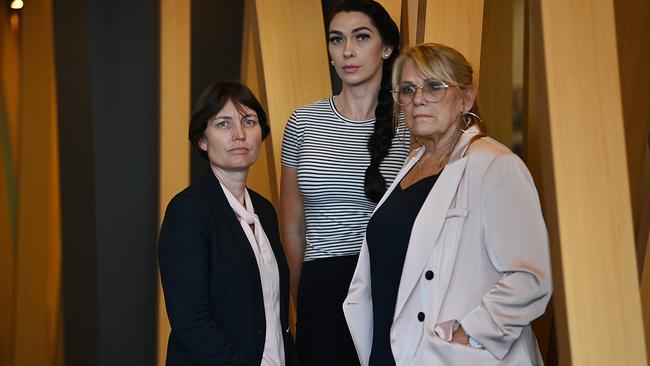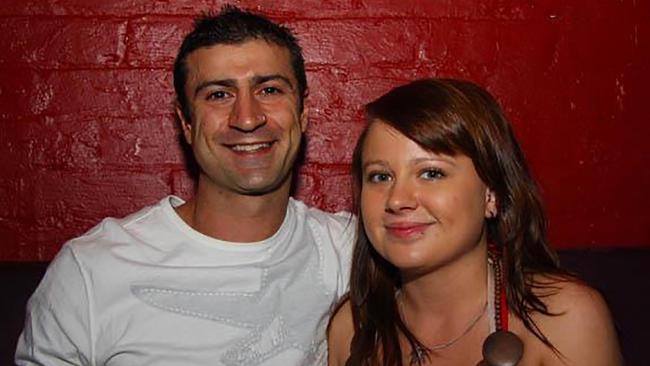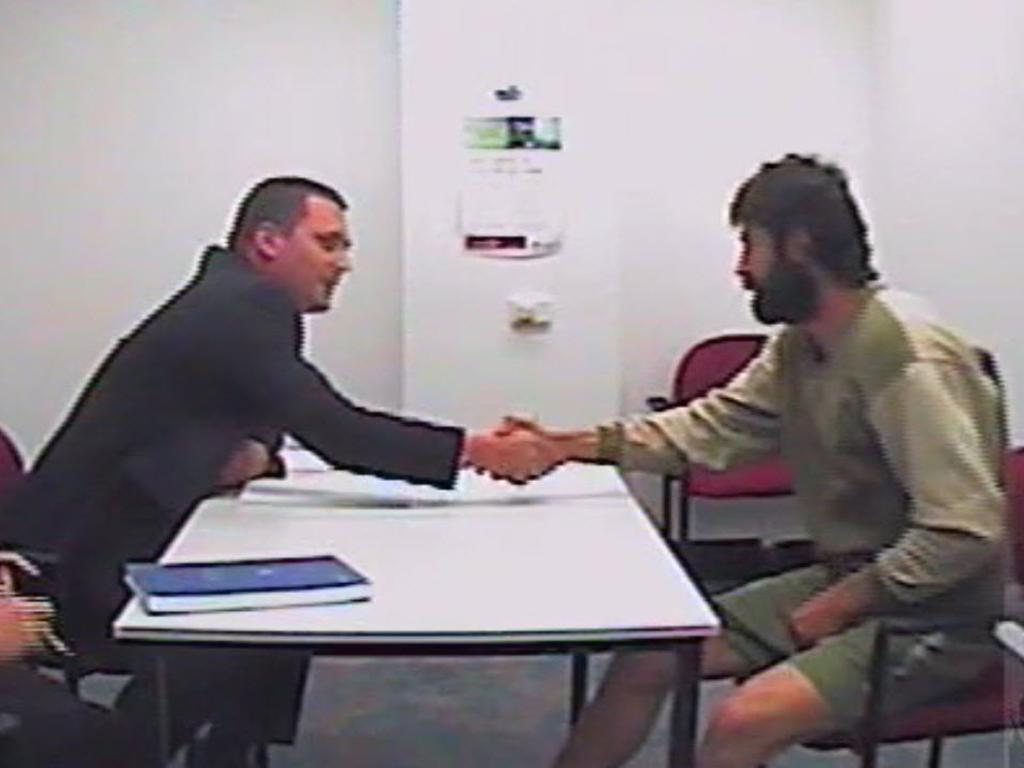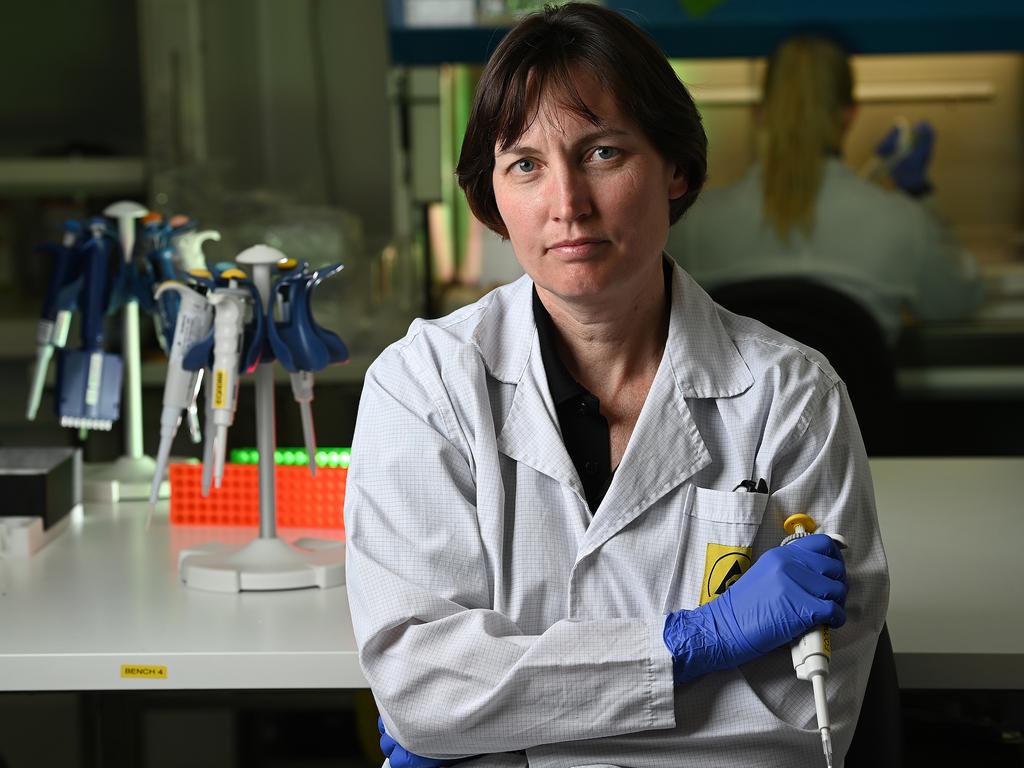Shandee Blackburn murder: Queensland Health Minister Yvette D’Ath rejects calls from family for inquiry as ‘DNA failures’ exposed
The Queensland Health Minister has rejected calls for an inquiry into the state’s forensics lab, following serious allegations about failures in the murder investigation.

Queensland Health Minister Yvette D’Ath has rejected growing calls for an inquiry into the state’s forensics laboratory, following serious allegations about failures in the handling the Shandee Blackburn murder investigation.
Ms Blackburn’s family have called for a full inquiry into the government-run laboratory after one of Australia’s leading forensic experts, Kirsty Wright, raised concerns about the laboratory’s mistakes during the investigation.
Addressing the matter at a press conference on Friday, Ms D’Ath said the coronial inquest into Ms Blackburn’s murder would have to suffice, unless new evidence was brought forward.
“The comments made (by Dr Wright) relate to a particular case,” Ms D’Ath said.
“There hasn’t been any evidence brought forward about any failings in relation to the forensic unit, other than the allegations specifically in relation to this case.
“On this matter there has been a complete coronial inquest in which the coroner did not make any findings about any failings with the forensic unit.
“If there is anyone out there that has additional information that wasn’t considered at the time, there are avenues to have that considered.”
Ms D’Ath was asked what message the government had for Ms Blackburn’s family, who have asked for all samples from Shandee’s case to be handed over for independent analysis.
“There has been a full coronial inquest on this,” Ms D’Ath said.
“I appreciate that not everyone is satisfied with findings from coronial inquests, but there has been a coronial inquest in which there are findings that have been made.”
Ms D’Ath said she was “not aware of“ any problems with the forensics laboratory.
Shandee’s family seeks inquiry
Earlier, Ms Blackburn’s family demanded immediate retesting of forensic evidence in the case, and a full inquiry to determine the extent to which other crimes have been affected by a litany of major errors and problems in Queensland’s government-run laboratory.
Legal and academic figures have backed the family’s call for a thorough investigation into the laboratory, as more serious failures in the handling of Blackburn’s unsolved stabbing murder are revealed. Mistakes in the lab identified by Ms Wright will undermine confidence in Queensland’s legal system and jeopardise prosecutions until investigated, criminal defence lawyers and former police say.
As the Health Department refuses to answer questions about its laboratory, Blackburn’s mother, Vicki, and sister Shannah said they were shocked after learning of the forensics failures that may have helped her killer get away with murder.
Vicki Blackburn said the many concerns raised in investigative podcast series Shandee’s Story, examining her daughter’s slaying as she walked home from work in Mackay in 2013, were not isolated and had been going on for a long time.

“What I’m asking is for the Queensland government to immediately hand over all samples and records from Shandee’s case to an independent, fully qualified facility for retesting to be carried out with the utmost urgency,” she said. “You can’t sweep this under the carpet. This needs to be sorted out for every case.”
Vicki and Shannah Blackburn joined Dr Wright, the family’s lawyer, Kristy Bell, and The Australian’s Hedley Thomas, who has been investigating the murder for the podcast, in a media conference in Brisbane to call on the state government to act.
Dr Wright outlined some of her findings and her conclusion that the government laboratory’s results could not be trusted. “Quite simply, I’ve never seen a case done so poorly,” she said.
Ms Bell said the revelations would have an “astronomical” impact on the state’s criminal justice system. “Probably the closest comparison I can think of is the ‘Lawyer X’ scandal that’s taken place in Victoria,” she said. “We really have no idea what the potential is for the impact on other cases.”
Ms Bell backed the calls by the family and Dr Wright for an independent inquiry, and said the first step for Blackburn’s case was to have forensic samples retested.
There was a “real potential” of people being convicted for offences of which they were innocent, or of the guilty walking free, she said, “so it is in the public interest this be thoroughly investigated.”
Defence lawyer Nick Dore said the “concerning” doubts engulfing forensics “could potentially undermine a fair trial and be disastrous for both victims and for the accused”.
“There is a perception that a lack of forensics weakens a case and large amounts strengthen a case,” Mr Dore said.
Former Queensland Law Society president Bill Potts said juries relied on the independent and expert evidence of scientists.
“The questions being asked are serious, and a serious response should be undertaken to ensure the integrity of results and integrity of evidence before the courts,” Mr Potts said.
Premier Annastacia Palaszczuk said on Thursday she would receive a briefing from police before commenting.
Her deputy, Steven Miles, said he was unaware of any issues with the laboratory when he was health minister from 2017 to last year. “You’ve got to give us a chance to see what’s been said. This is the first I’ve heard of it,” Mr Miles said.
In the latest revelation from the podcast, Dr Wright said in the weeks after the murder, the laboratory had “incredibly” found no DNA on a high-priority sample taken from Blackburn’s arm that would have contained many hundreds of her own skin cells.
Dr Wright said there should have been “alarm bells ringing” in the lab after the testing did not detect DNA in the forearm sample.
“Without any question, you should get a DNA profile (in that type of sample) 100 per cent of the time,” she said.
Sixteen months later, in July 2014, the lab conducted more testing of the same sample and detected mixed DNA from multiple people but could not interpret who they were.
“That’s critical because it shows that at the time a majority of the samples from Shandee’s case were being analysed, there were flaws in the system.
“This sample proves that,” Dr Wright said. “Further, it shows that the laboratory knew that. In 2014, the laboratory knew there were flaws in their processes.”
At that point, the lab should have gone back and retested 43 other samples from Blackburn’s case that they hadn’t fully tested, Dr Wright said.
To collect the forearm sample, police used a special kind of sticky tape, firmly pressing on the skin six to 12 times. Each press would have transferred hundreds of cells from Blackburn’s skin, Dr Wright said.
“If an offender had come into contact or gripped her arm at the time of the attack, potentially some of the offender’s cells may have transferred across to Shandee’s skin.
“What other samples that could contain the offender’s DNA are they not detecting? What’s going wrong within that lab?”
It was previously revealed the lab failed to detect trace DNA of suspect John Peros in his own dirty vehicle, and failed to detect DNA in a sample from a pool of blood.
Dr Wright said the Queensland Health Forensic and Scientific Services lab should be suspended until it was independently reviewed.
“We can’t, in my opinion and based on what I’ve observed, trust … any of the DNA results coming out of this lab,” Dr Wright told the podcast.
“If a lab is making mistakes, they could potentially help to send an innocent person to jail or help to acquit somebody that’s guilty.
“At best, I believe the lab has been negligent … at worst, in my opinion, I think they’ve been obstructive in relation to assisting the police in resolving this case.”
Dr Wright, a forensic biologist and former head of the nation’s criminal DNA database, is confident after reading hundreds of pages of relevant documents that major changes to the lab’s equipment and software introduced just weeks before Blackburn’s murder interfered with its ability to generate DNA profiles.
Criminologist and former detective Terry Goldsworthy said Dr Wright’s concerns should be “immediately looked at”, as any doubts about forensics would be a blow to the justice system’s legitimacy.
“Deficiencies should be fixed immediately, otherwise they’re opening up a Pandora’s box,” Dr Goldsworthy said.
Anyone with information about the murder of Shandee Blackburn can contact Hedley Thomas confidentially at







